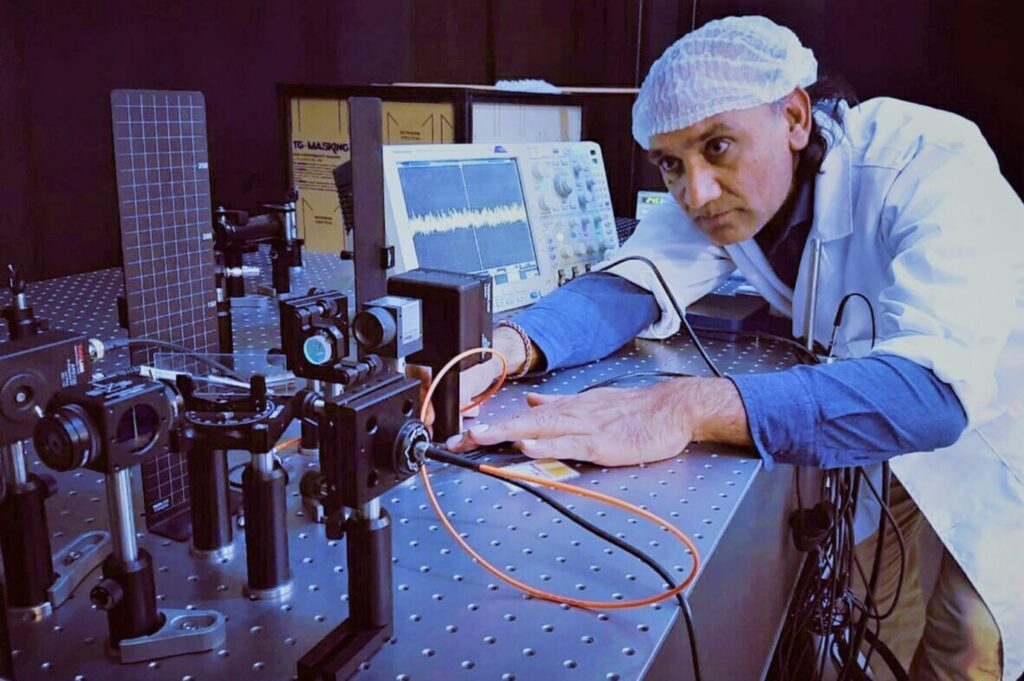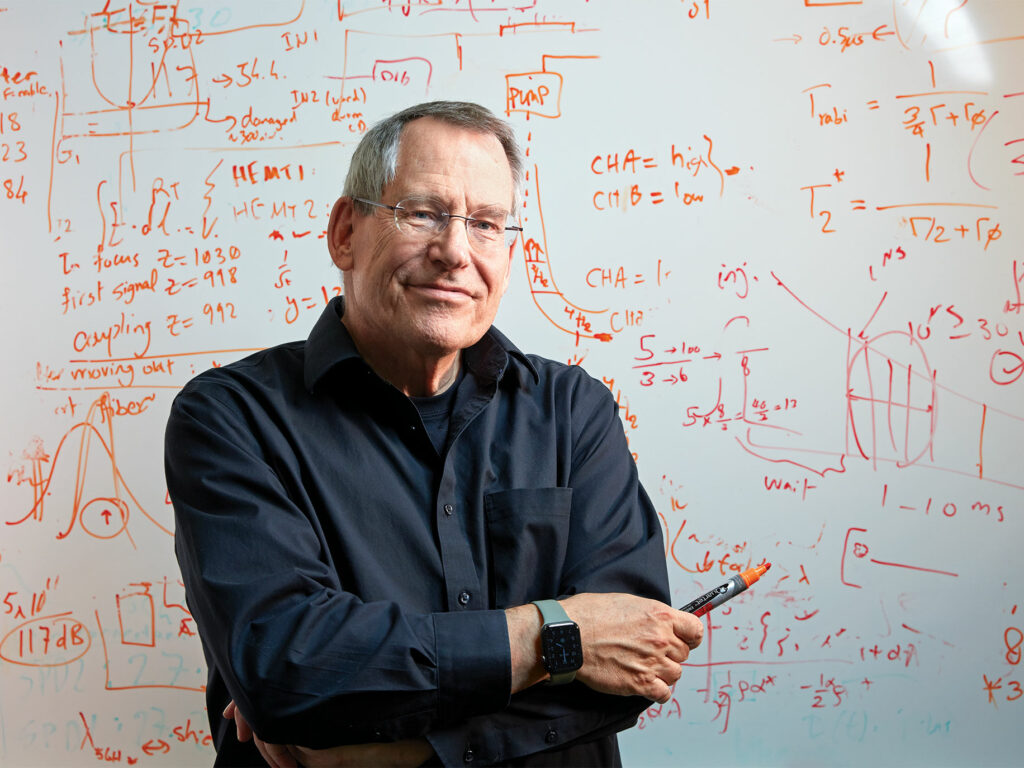
The National Science Foundation (NSF) today announced a $5 million, two-year award to a University of Maryland-led multi-institutional team to develop quantum interconnects—crucial technology to connect quantum computers and pave the way for a quantum internet.
The team, QuaNeCQT (Quantum Networks to Connect Quantum Technology), has been developing the quantum versions of a modem and a router—familiar equipment in the world of standard, or “classical” computing, but a challenge to build for use with devices that operate based on the principles of quantum.
The devices allow “ion trap” quantum computers—a leading approach to quantum information processing developed in part at the University of Maryland—to exchange quantum information over distances measured in kilometers, eventually leading to the development of networks that could revolutionize numerous industries and help solve vexing societal problems.
Quantum networks are at an inflection point with the potential for significant expansion, said Edo Waks, a professor of electrical and computer engineering and associate director of UMD’s Quantum Technology Center (QTC). But the scale-up can’t happen without standardized modular hardware between the new computers that are emerging and the vast infrastructure of the current internet.
“The hardware we are developing will address the critical gap, opening up the door to the future quantum internet that can connect quantum computers over continental distances,” said Waks.

Other UMD team members include physics Assistant Professor and QTC Fellow Norbert Linke, and Mid-Atlantic Crossroads (MAX) Executive Director Tripti Sinha, assistant vice president and chief technology officer for UMD’s Division of Information Technology. The team also includes Dirk Englund of the Massachusetts Institute of Technology and Saikat Guha of the University of Arizona.
The researchers plan to deploy this new technology in the Mid-Atlantic Region Quantum Internet (MARQI), UMD’s regional quantum network footprint. The MARQI network will interconnect quantum computers at UMD, the Army Research Laboratory, MAX and IonQ—a leading quantum computing company focused on ion-trap computers that operates in UMD’s Discovery District—with a potential for significant expansion.
During the first phase of research, the team developed working prototypes of the quantum router and modem. Using a process called quantum frequency conversion, the modem converts signals from a quantum computer to infrared photons that can propagate through optical fibers over long distances. The router is powered by a silicon photonic chip that manipulates quantum signals in the network using quantum teleportation—an effect demonstrated in 2009 by researchers at UMD’s Joint Quantum Institute that allows quantum states to be transferred between particles that are physically separate. The team has deployed these prototypes in the MARQI network and established direct links with the various nodes of the network.
A quantum network could revolutionize numerous industries that take advantage of quantum computing including computing, banking, medicine and data analytics It would also enable connection of many multiple small quantum computers into powerful distributed quantum computers that could potentially solve problems with significant societal impact, from curing diseases to new approaches to fighting climate change.
As quantum technology converges with the Internet, a new technology sector would emerge, the researchers say, bringing with it the potential for major economic growth by producing rapid technological innovation and creating a large number of new jobs for the future “quantum workforce,” just as the emergence of the Internet did toward the late 20th century.
If you found this article to be informative, you can explore more current quantum news here, exclusives, interviews, and podcasts.




















